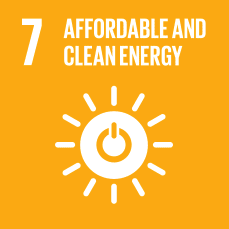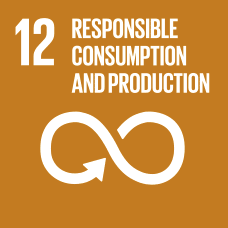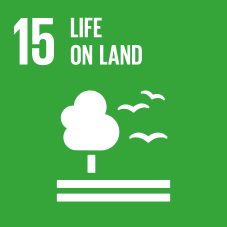



Research and development projects at the PGNiG Group
In 2019, the PGNiG Group carried out research and development work, including the following key projects:
- In partnership with the Oil and Gas Institute – National Research Institute (INiG – PIB), PGNiG implemented phase two of the research project ‘Evaluating the possibility of reducing emissions of air pollutants at PGNIG S.A.’, seeking to assess the actual potential for reducing emissions of air pollutants in the areas covered by PGNiG’s operations.
- PGNiG launched deployment of the Energy Management System described in standards PN-EN ISO 50001:2012 and PN-EN ISO 50001:2018. The project involved employee e-training on the scope and objectives of the new system, including unification of the energy efficiency policy, adoption of common ISO 50001-based standards for exploration and production, as well as end-to-end control and optimisation of the energy management process. Capital projects to build photovoltaic farms on the site of underground cavern gas storage facilities are also carried out as part of the implementation process. They are intended to generate electricity for the Company’s own needs, with excess electricity to be fed into the power grid.
- Exalo Drilling worked on a concept of a photovoltaic system for the facilities in Zielona Góra. Installation of 244kW photovoltaic collectors will drive down electricity consumption and CO₂ emissions. Tests were also carried out to determine the potential to reduce CO₂ emissions and diesel oil consumption in compression-ignition engines by using a fuel and gas mixture (CNG). The business objective of that project is to convert certain diesel power units in generators so that they operate in the dual-fuel mode (diesel oil/CNG).
- As part of the project to expand hydrogeological monitoring of underground water in the Mogilno Underground Cavern Gas Storage Facility, GSP developed a plan of geological work to drill four wells (Kp-3, Kp-4, Kp-5 and Kp-6) for the monitoring of groundwater in the Quaternary formations at the Mogilno UCGSF. The project is currently under way. 2019 saw completion of the pilot sea currents monitoring programme, part of the Puck Bay water monitoring project in the area of discharge of salt brine into the Puck Bay from Kosakowo CUGSF Cluster B leached caverns, carried out in partnership IBW PAN. The results of the project are used in the interpretation of data acquired in the course of the Puck Bay water monitoring project.
Environmental protection initiatives
In 2019, the PGNiG Group companies engaged in a number of activities to promote environmental protection:
- Geofizyka Toruń carried out a number of environmental education and environmental awareness projects targeted at the company’s employees and the local community. Employee events include talks, internal and external training sessions, distribution of posters and leaflets, as well as information campaigns on waste sorting, air protection, circular economy etc., and promotion of initiatives such as the European Sustainable Transport Day – ‘Safe Way Home’. In addition, the company successfully continued the programme to minimise the potentially adverse environmental impact of the machinery used during seismic survey works. The programme ensured very good technical condition of seismic vibrators, especially of their hydraulic hoses, and reduced air emissions through gradual upgrade of the company’s vehicle fleet (about 30 older vehicles were phased out).
- PGNiG carried out the ‘Be eco-friendly’ education and information campaign to improve environmental awareness among its employees by promoting good habits in rational use of natural resources.
- PGNiG Termika co-organised the ‘Picnic with Climate’ as part of the Capital City of Warsaw’s ‘Partnership for Climate’ programme, organised the ‘Warsaw Energy Day’ together with Veolia, and engaged in the cleaning of areas around the Żerański Canal as part of the Global Earth Day event. In 2017, a decision was made to close and reclaim the Siekierki CHP plant’s ‘Zawady’ combustion waste landfill site. The site will be turned into a sports and leisure area, to be opened at the end of 2021.
- PTER supports the promotion of energy cluster projects and development of local energy markets based on local resources. The company cooperates with PGNiG OD in carrying out, developing and promoting projects as part of the programmes to eliminate low-stack emissions. The company has also partnered with Bank Ochrony Środowiska S.A., BOŚ Eko Profit S.A. and Bank Gospodarstwa Krajowego to construct high-efficiency gas-fired heat sources for housing cooperatives and house-owner associations, taking into account the need to cooperate with local municipalities such as Radków and Zawidów focusing on their gasification and development of heating systems based on gas fuel and LNG. The company is also a partner of the Konstancin-Jeziorna municipality in implementing investment projects designed to eliminate low-stack emissions.
- Under the ‘PSG in harmony with Nature’ programme, the company promoted environmental education among its employees, enhancing their environmental awareness and knowledge and highlighting existing environmental problems.
- PGNiG OD installed photovoltaic systems on selected roofs in its facilities, thus becoming partially energy-independent and driving down its energy consumption. The company also upgraded its lighting systems (light bulbs and lamps), installing LED lighting sources in several facilities.
- PST co-organised environmental workshops in Munich and Graz together with the Plant-for-the-Planet Foundation, where kids learned how to be environmentally friendly and become Climate Justice Ambassadors. As part of the project, the company also hands out ‘welcome trees’ to its new retail customers and plants new trees whenever a contract is extended for a new period.



